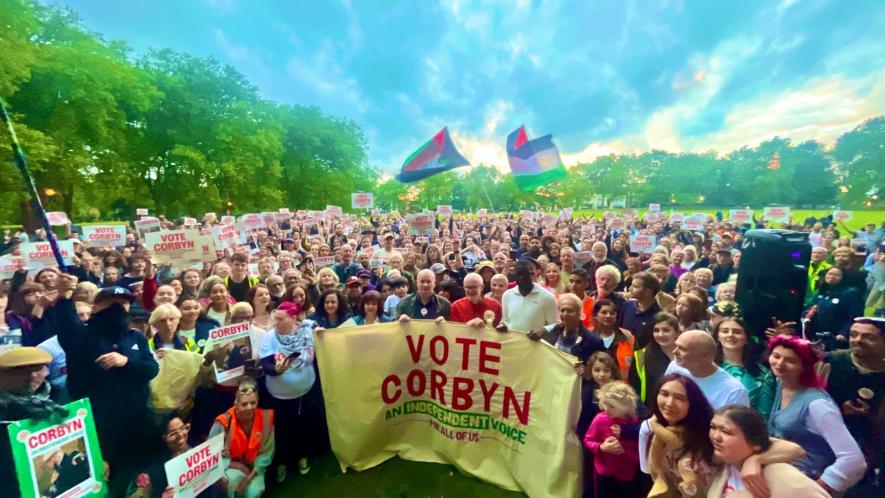UK Polls: Labour Party Set to Win, But What Does This Mean For People?

Source: Jeremy Corbyn/X
The general elections in the United Kingdom on Thursday July 4 are predicted to end in devastation for the Conservative Party in Parliament, according to all major polls. Keir Starmer’s Labour Party is projected to gain over 200 more seats compared to the last election, giving the party its largest majority ever.
The Conservative policies over the past 14 years are largely blamed for this result. Administration after administration, culminating in Rishi Sunak’s term, has eroded the UK’s once robust social security network, restricted the right to strike, threatened the National Health Service (NHS) with irreversible damage, and implemented Brexit. Additionally, they have enacted anti-immigrant policies, including initiatives to deport immigrants to detention centers in Rwanda.
Rishi Sunak’s government failed to fully address the acute cost of living crisis, which has had devastating consequences. The high cost of food, for example, has led to a skyrocketing use of food banks across the UK and the fall of nutrition levels to worrying levels. Recent reports indicate that the lack of nutritious food has impacted the health of children in the UK, who are now shorter and more malnourished than before.
Labour has capitalized on the scorched ground left behind by the Tories, but their government carries its own risks. Program- and value-wise, the differences between the two parties have narrowed. For instance, despite 14 years of cuts and austerity in the NHS, Labour’s program does not commit to investing the necessary resources, according to the collective Keep Our NHS Public. Instead, the group warns, Labour continues to insist that there is a role for the private sector in healthcare, claiming that private providers can help reduce waiting lists despite evidence to the contrary.
Read more: Starmer’s Labour purges left-wing members ahead of election
By adopting pro-business, pro-private sector ideas, Labour has managed to secure support from some traditionally Conservative voters. At the same time, it has alienated a significant portion of its traditional base, including working-class and migrant communities. One of the most contested points has been Starmer’s stance on the Israeli war on Gaza, where the party has ignored its base’s calls for solidarity with Palestine.
Party structures have actively silenced and excluded candidates who advocated for peace and solidarity with Palestine. This includes Jeremy Corbyn, who is running as an independent after more than 40 years as a Labour representative. During his campaign in Islington North, Corbyn has reiterated ideas and pledges from his time as Labour leader, including a promise to fight to keep the NHS public and continued solidarity with Palestine.
Corbyn’s support comes not from billionaires and big businesses, but from community members and social justice activists. Mustafa Barghouti, a physician and activist with the Palestinian National Initiative, described Corbyn as a man of the people who fights for rights and supports peace and justice in all forms.
Regardless of the election outcome on Thursday, people in the UK still face a period of struggle for their public services and more humane policies. Based on the ideas circulated in the lead-up to the elections, the success of that struggle will depend more on their own social movements than on the Labour Party.
Get the latest reports & analysis with people's perspective on Protests, movements & deep analytical videos, discussions of the current affairs in your Telegram app. Subscribe to NewsClick's Telegram channel & get Real-Time updates on stories, as they get published on our website.
























